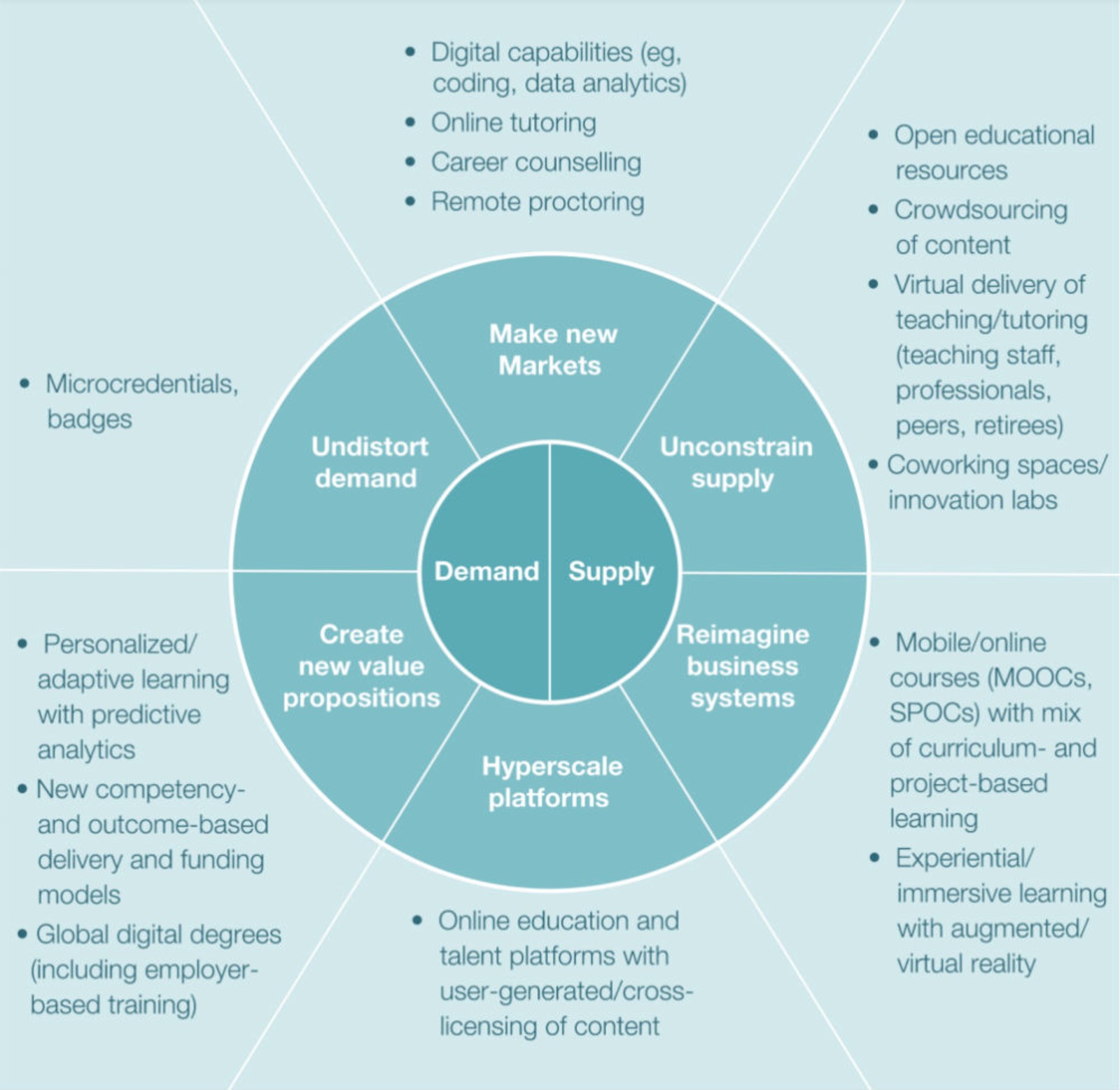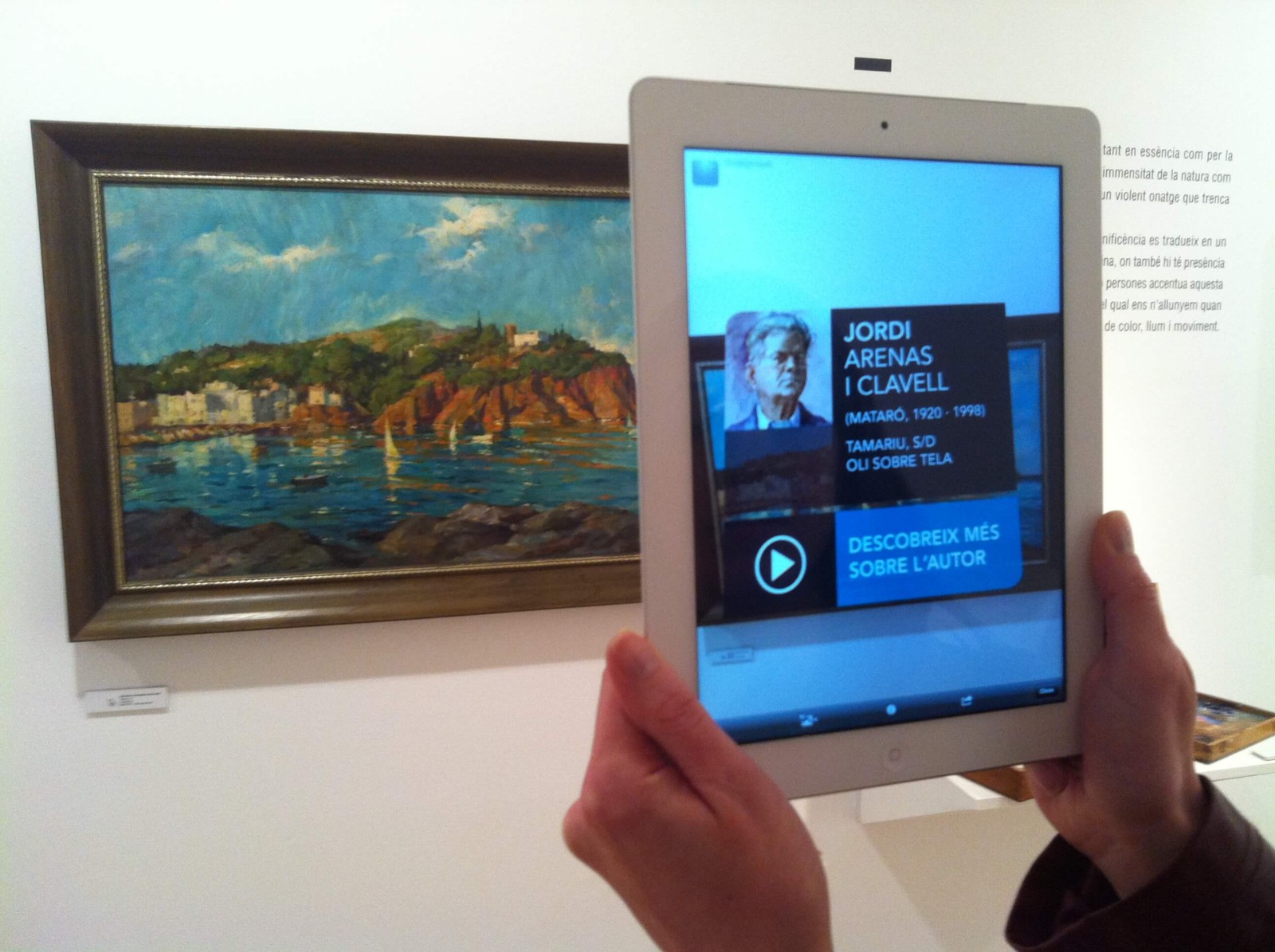
Friday, 6 September 2019
Your guide to continuing education
The Beginning
It’s back to school, but with a twist
September is back to school time, but not just for the kids. In this issue of Your Wealth, we’re putting a twist on a familiar theme by looking at education for adults, and why it’s a topic that’s gaining traction all over the place.
Continuous education is a must: in a world of rapid change, and with automation threatening to disrupt the labor market, a regularly refreshed skill set is one of the best ways to enhance employability. In fact, the rise of the knowledge economy marks a shift in the entire relationship between the market and the education system. These days, expecting a university education ― even at the highest level ― or a vocational qualification to set you up for life is highly unrealistic, experts say. New skills are needed to prepare employees for the new demands of the workforce, including “hybrid jobs” (jobs that combine skills in new ways, like marketing and statistical analysis). And regularly updating and diversifying your skill set is the best way to withstand unexpected shocks in a competitive and uncertain global environment. Looked at more optimistically, lifelong learning also offers myriad benefits to health, social capital and a person’s earning power.

And it’s a lot more diverse than just getting a whole other degree. Lifelong learning is a chance to take our education in whatever direction we feel is most beneficial for us — which could mean retraining for a total career shift, or be as simple as joining a book club, going to an improvisation workshop or listening to a podcast. But it’s also intrinsically linked with maximizing the value and impact of an organization. As an open letter from a Harvard Professor and an engineer to CEOs stresses, much of the most valuable learning takes place not in the classroom but “in the field — finding ways to do better while doing the work.”
Tech is making adult education a lot more feasible: This McKinsey study sees the education of the future being seamlessly linked to digital platforms, predicting a flourishing of new markets, an almost limitless supply of knowledge and training on platforms that can be scaled massively, and the creation of new value propositions (increasingly personalized learning, new modes of delivery, employer-specific accreditations) and business systems (such as virtual reality-based immersive learning).

CIB’s new contactless payment feature keeps you moving: Navigating the demands of a fast-paced world isn’t always easy, but with tools that help you save precious time, you know you’re off to a good start. With CIB’s new contactless payment feature, now available for all CIB credit cards, debit cards, and selected point of sale (POS) machines, shopping is simpler, faster and easier than ever before. All you need to do, for purchases under EGP 300, is tap your card on the POS machine, while card transactions over EGP 300 require you to enter a PIN.
State of the art technology ensures payments are made in seconds, in total security: For CIB, safeguarding customer money, privacy, and information is of the highest importance. So every transaction processed employs maximum security measures against fraud, using standard encryption to keep you safe and secure. For added peace of mind, contactless payments are accompanied by a small beep or the flash of a green light, and transactions needing a PIN will come with a receipt and an instant SMS. This is in keeping with the global industry standard, so you can confirm exactly when your payment has been made.
Identifying your learning needs

So how do you identify your learning needs? Whether you want to shift careers, work towards a promotion or be more effective in your existing role, it all starts with an honest self assessment of where you are and where you want to go. Set some clear goals, look at your existing technical and soft skills and evaluate your personal priorities, the culture of your workplace and how much time you are able to devote to learning. Irrespective of the sector, being as specific as possible about how you can apply your learning to your professional growth helps you see a concrete impact.
Personal conversations offer valuable insights: Informational interviews ― purposeful conversations with someone working in a field you would like to learn more about ― are widely recommended to understand the skills you need to progress or even to make a career shift.
Professional development books can broaden your perspective, letting you reflect on the values that drive you and what you really want to achieve. Here are 15 of the best.
And career counseling can help you focus: Wuzzuf offers advice, CV reviews and interview preparation. Career Counseling Egypt provides coaching support in making a career shift, training and applying new skills within your workplace. For AUC alumni, the university’s Career Center provides individual assessments, online resources and career development workshops.

What are employers actually looking for? The rise of Big Tech has bred a new highly desirable employee skill set, including big data analysis (quantitative research, statistical analysis and data mining, to name a few), coding and programming (particularly understanding multiple programming languages), project management (from budget planning to operations and performance review), social media management and digital marketing, cloud and database knowledge.
But soft skills are also vital: These include communication, adaptability and critical thinking. Companies ranging from SMEs to large corporations also prize employees with a “growth mindset,” ― highly adaptable, able to solve a wide variety of problems and take initiative, a study by Canada’s Brookfield’s Institute says (pdf).
What learning resources are available?

What are the challenges of making a career change? The stakes may seem very high. You risk losing the seniority, respect and prestige you might have spent years building in a given field (although this doesn’t always have to be the case). And the potential fallout — financial problems from being unable to work full-time or money spent on retraining, the challenge of mastering new skills, feeling undervalued, a lack of any time to yourself, and no job guaranteed at the end of it — can be paralyzing.
Daunting or not, it can be done: An increasing number of people make career shifts, with the FT’s Helen Barrett calling it “the only rational response” to the unpredictability of today’s working life. If you want to switch careers, you should first take the time to know yourself, and what you want to achieve. This should help you determine if the path ahead involves taking a second degree, studying at night while continuing to work, making a lateral move, becoming a freelancer, or any number of other options — while shoring up your confidence and self-belief in the face of obstacles. These examples of people who made bold career moves give some insight into the challenges, and payoffs, you can expect.
Making a career shift often involves retraining, or significantly adding to your knowledge of a particular sector (although this does depend on your circumstances, and how much of a change you are making). People often see obtaining higher education degrees, diplomas or certificates as being the best way to do this.
In-person programs allow for complete immersion: The Financial Times has information geared specifically towards in-person global business education, ranking the best institutions in the world for executive education, online and in-person MBAs, European business schools, master’s degrees in management and finance, and MBAs that particularly benefit entrepreneurs and women. The rankings are based on ratings provided by students and companies that participated in the courses, and assess a host of factors ranging from faculty diversity to program design and value for money. The Times Higher Education is less specific, but also a great resource. Its World University Rankings rate over 1,250 universities according to teaching, research, knowledge transfer and international outlook.
Egypt has an array of higher education courses, which you can find an overview of here. We are also part of the Erasmus+ program, which provides study opportunities and grants at universities in 28 European countries.
Not every change requires a new degree: Certificates and diplomas are extremely important in showcasing skills acquisition — particularly if you can combine them with some relevant practical experience. In Egypt, the AUC School of Continuing Education works with some 20k people per year, offering courses and diplomas in language, business and computer studies, human resource management, TOEFL preparation, teacher training and youth programs. ESLSCA Business School offers multi-disciplinary programs in finance, accountancy and economics, leading to a diploma. And the professional development program at Nile University offers courses in business, management and technology. Further afield, institutions all over the world offer hundreds of diplomas and certificates you could study for.

For Cairenes seeking ways to build upon their skill sets, the Knowledge Academy offers introductory coding courses and the Russian Cultural Center has courses in graphics, web design and engineering. The Cairo Institute of Liberal Arts and Sciences (CILAS) is a creative alternative to traditional learning models, with discussion-based learning programs in the humanities and social sciences. The Cairo Urban Initiatives Platform, meanwhile, provides a fascinating mapping of learning providers and the different activities they offer ― including workshops, cultural seminars and live performances ― designed to foster skills development. For the artistically minded, Art Cafe has courses for adults and children. And you can hone your public speaking skills at the Cairo branch of Toastmasters.

Whether changing your career or extending your skills, distance learning has options for both. The Open University, a longtime pioneer of the distance learning course, is now joined by others, including Cambridge’s Institute of Continuing Education (ICE), MIT, Harvard and Stanford.
Abundant online resources offer (almost) anything you can imagine: The best websites around have diverse learning courses, professional coaching and guidance, languages, training in specific workplace skills, and practical skills including graphic design, WordPress development and how to work with self-driving cars. Leaders in the online learning field include Khan Academy, Lynda, Udemy, Udacity, edX and Coursera. You can check out these lists of the 24 best websites for learning new skills and 43 great free courses offered by Udemy, edX and others.
Companies too are seeing the value in sharing their specialist knowledge. Google is now offering courses ranging from big data and machine learning to inductive reasoning, AI and customer segmentation. Meanwhile the Bloomberg Terminal offers courses on financial markets, economic indicators, currencies, equities and income, access to pre-built financial models, and advice on networking, industry research and how to (subtly) do a thorough check on prospective interviewers. And Entrepreneur magazine offers some great specialist courses, including search engine optimization (SEO) and Adobe CC.
Your top 5
Your top 5 pieces of business and economic news in Egypt in August:
- The Central Bank of Egypt’s Monetary Policy Committee (MPC) cut interest rates by 150 bps, the first rate cut since February.
- We learned that headline inflation fell to a four-year low of 8.7% in July, despite subsidy cuts.
- Egypt’s first IPO this year ― e-payments platform Fawry ― got off to a good start, with shares up 31.2% on the first day of trading. We’re still waiting to see if Banque du Caire will go ahead with its anticipated initial public offering by the end of 2019.
- The Finance Ministry mulls issuing callable bonds and taking an EGP-denominated bond issuance to the international market.
- The government indicated it intends to impose a 5-10% schedule tax on social media and internet search ads, on top of the 14% VAT, as part of anticipated amendments to the VAT Act. The VAT rate itself is not expected to change.
The role of employers

Companies need to prioritize employee development. It helps with performance management, and leads to increased loyalty, engagement and feelings of ownership. Organizations should align around shared goals to build agile teams and future company leaders, says this Forbes article.
Even the robots are on hand to help: Online learning giantCoursera has recently developed a machine learning tool that aims to be an objective metric for evaluating proficiency. Companies that want to quantify their return on training investment can make use of AI-powered software to see which of their employees are earning top scores in Coursera classes, how their skills compare with their peers, and which courses would help to fill any knowledge gaps.
Financial investment in employees is growing: Companies love to talk about the importance of investing in employees, but a cohort of large US companies, including Bank of America, Procter and Gamble, The Boston Consulting Group, Boeing, Chevron, Walmart, Amazon and Starbucks, now offers full or partial funding of further education programs for their employees. Terms and eligibility vary from company to company, with Google offering USD 12k per year for employees to spend on classes or degree programs that help them do their jobs, Salesforce providing USD 5,250 for job-related courses or degrees, and Boeing offering USD 3k per year to full or part-time employees that have been with them for a year, to spend on any strategic field of study they choose.
Footing the bill? These companies say it’s a no-brainer. Guild Education calculated that each of the companies it partners with had seen a return on investment of USD 208 for every USD 1 spent, based on an assessment of employee productivity, engagement and loyalty. Disney, which reportedly expects to spend some USD 25 mn on employee education every year, says that covering the cost of college for its employees allows it to retain valuable talent that it would otherwise have had to keep spending money to attract.

But it’s not just about the money: companies need to have their say in course design. Strengthening the three-way partnership of individuals, businesses and higher education suppliers should be a priority for governments all over the world, writes Anna McKie in a Times Higher Education article. Individuals and universities can’t shoulder the full costs of lifelong learning alone, she argues, and companies also have a valuable role to play in course design, given how slow universities have been to respond to workplace needs.
Instigating a talk about full or partial tuition funding? Skilful negotiation is the key. Remember to highlight how your continued education will add value to the company, give your employer some space to consider your proposal ― perhaps by raising the subject in an email before holding a face-to-face meeting ― and be ready to agree on a time commitment to stay with the company after completing your course. Even the most generous employer is unlikely to fund your education purely out of the kindness of her heart.
Trends in the lifelong learning industry

An increased demand for fun, user-centered learning options: 2019 learning trends, reflect an increased appetite for novelty and control in the learning process, and some of the most popular include peer-to-peer learning, employee-curated content, and the appetite for diversity in learning platforms ― from mobile phones to MOOCs (Massive Open Online Courses) to using virtual and augmented reality technology. Gamification, which comes so naturally to younger generations entering the workforce and can be used as an easy incentive to maintain motivation, is a trend that employers are strongly encouraged to leverage.
Social learning is growing in popularity and efficacy: From one-to-one online collaboration and video conferencing to oh-so-convenient and ecological virtual conferences, learning that allows for interaction with others clearly has a huge appeal.
The desire for deeper engagement with course material is another industry trend that’s been noted, with the rise of the “flipped classroom,” where core content is presented and reviewed outside of the learning space, so that in-person time is used for more extensive discussions about its meaning and applicability.
And could the primacy of the degree be wavering? Standards-based certificate programs are growing in popularity, and badges, such as those used in Mozilla’s Open Badges project, are also becoming an increasingly recognized endorsement. Open badges are “visual tokens of achievement, affiliation, authorization, or other trust relationships sharable across the web,” the project says.
Enterprise is a daily publication of Enterprise Ventures LLC, an Egyptian limited liability company (commercial register 83594), and a subsidiary of Inktank Communications. Summaries are intended for guidance only and are provided on an as-is basis; kindly refer to the source article in its original language prior to undertaking any action. Neither Enterprise Ventures nor its staff assume any responsibility or liability for the accuracy of the information contained in this publication, whether in the form of summaries or analysis. © 2022 Enterprise Ventures LLC.
Enterprise is available without charge thanks to the generous support of HSBC Egypt (tax ID: 204-901-715), the leading corporate and retail lender in Egypt; EFG Hermes (tax ID: 200-178-385), the leading financial services corporation in frontier emerging markets; SODIC (tax ID: 212-168-002), a leading Egyptian real estate developer; SomaBay (tax ID: 204-903-300), our Red Sea holiday partner; Infinity (tax ID: 474-939-359), the ultimate way to power cities, industries, and homes directly from nature right here in Egypt; CIRA (tax ID: 200-069-608), the leading providers of K-12 and higher level education in Egypt; Orascom Construction (tax ID: 229-988-806), the leading construction and engineering company building infrastructure in Egypt and abroad; Moharram & Partners (tax ID: 616-112-459), the leading public policy and government affairs partner; Palm Hills Developments (tax ID: 432-737-014), a leading developer of commercial and residential properties; Mashreq (tax ID: 204-898-862), the MENA region’s leading homegrown personal and digital bank; Industrial Development Group (IDG) (tax ID:266-965-253), the leading builder of industrial parks in Egypt; Hassan Allam Properties (tax ID: 553-096-567), one of Egypt’s most prominent and leading builders; and Saleh, Barsoum & Abdel Aziz (tax ID: 220-002-827), the leading audit, tax and accounting firm in Egypt.